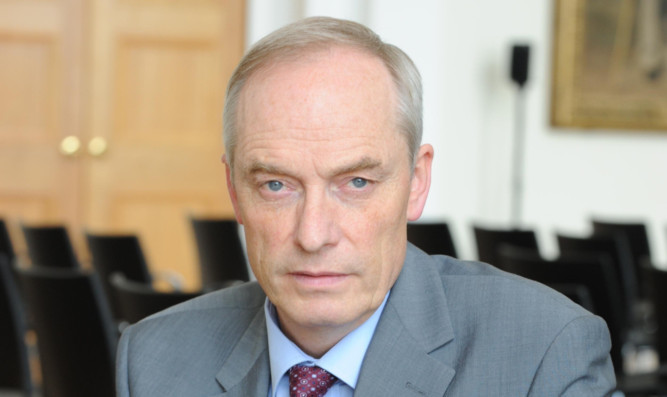The long-term recovery of the Scottish economy may depend on the successful resolution to the eurozone crisis, a leading economic observer has said.
Donald MacRae, chief economist at the Bank of Scotland, said the financial health of the nation was strongly linked to the state of the eurozone, which has been rocked by a series of financial crises.
He said Scotland’s economy was “barely growing” and recovery would depend on measures being brought forward to stem the sovereign debt crisis in the eurozone.
He was speaking as the bank published its latest Scottish Business Monitor, which showed a marginal improvement in trading conditions north of the border in the three months to the end of February.
“The Scottish economy stagnated during autumn 2012. This latest business monitor suggests a slight relaxation in that stagnation,” he said.
“Despite the apparent poor performance in autumn, business expectations for 2013 have improved from a low position.
“A return to more vigorous growth in the Scottish economy awaits a further increase in confidence in both consumers and businesses.
“This in turn depends upon building on policy measures to contain the eurozone sovereign debt crisis and implementing policies to restore the eurozone and UK economies to growth.”
The business monitor a survey of more than 400 companies across Scotland found that 29% of firms increased turnover in the latest quarter, 37% stayed the same while 34% saw their revenues decline.
Despite an overall negative balance of -5%, the result actually represents an improvement on the -10% outcome from the last survey period.
Of the individual business sectors, production firms reported a marginally positive period with a 2% increase in turnover, and there was progress for the powerhouse services sector which saw its net balance draw in from -16% to -9%.
Volumes of repeat and new business being taken on by respondent firms was largely unchanged in the survey period, while exporting activity fell to a net balance of -5%, slightly poorer than in the previous quarter.
However, there was a renewed optimism within the companies polled which reported a marginal upturn in how they viewed their prospects over the six months ahead.
Production firms proved the most confident of their prospects at +10%, while the services sectors were less optimistic with a -4% rating.
“These expectation levels do not indicate a significant fall in output accompanied by a return to deep recession, but neither do they indicate the private sector of the Scottish economy showing significant levels of growth. They suggest an economy barely growing.”
The BoS report came as professional services firm Deloitte said there were positive signs emerging from Scotland’s commercial property market.
The company’s UK Key Cities report predicts growth of 7% in commercial property rentals in the capital this year and a 5% uplift in the sector in Glasgow.
Alasdair Ramsay, head of Deloitte Real Estate in Scotland, said: “Although there are limitations to the extent of market recovery we should expect across Scotland this year, it is the most positive picture we have been able to paint for the region in some time.”
